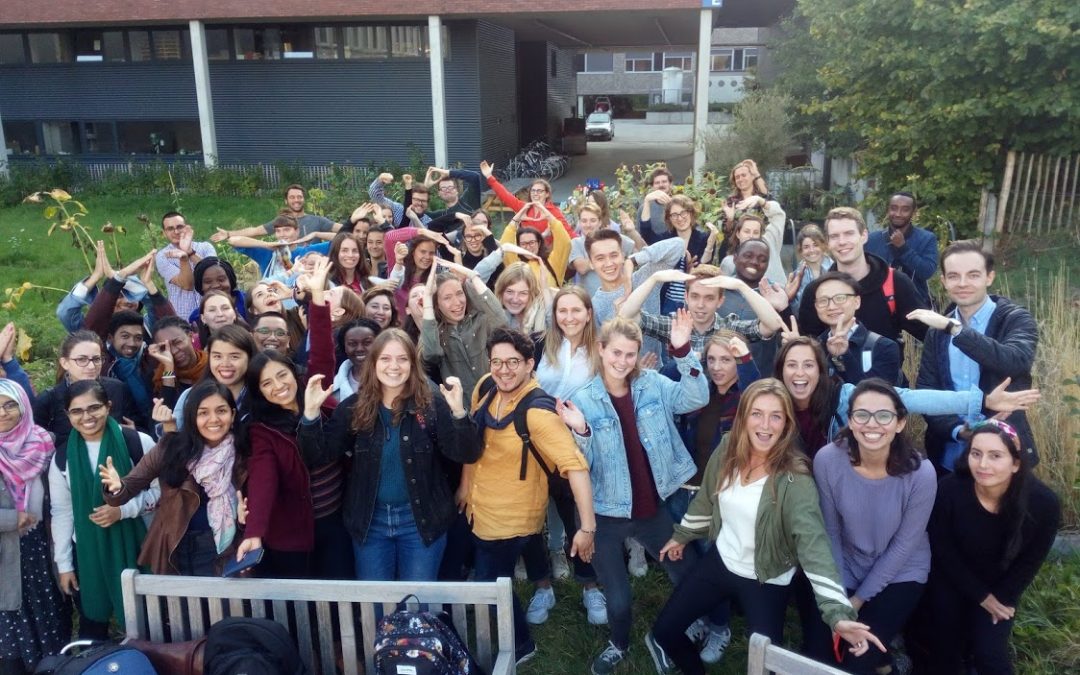On the evening of Tuesday the 25th of February, 5 students of the ICP Master of Science in Sustainable Development organised an interactive lecture night about having your own sustainable lifestyle. They invited three speakers with three different backgrounds and therefore very different aspects of sustainability came to light with each speaker. The event attracted a large audience, of which most were students from very distinct backgrounds, but all with the same goal: gain new information on sustainability as a whole and how to improve their own lifestyle. The evening started with a brief introduction from Anne Desreveaux about sustainability and how these speakers are connected with this subject.
The first guest was the entrepreneur Pieterjan Verhaeghen. He is the CEO and co-founder of Bolt, a green energy company. This company wants to tackle the issue of green certificates in the energy sector. Most of the common energy distributors in Belgium give their customers the opportunity to have a so-called green energy contracts which guarantees them that they have green energy. However, these green energy contracts are often with green energy certificates bought in Iceland or Scandinavia. Almost all of their energy production is renewable and therefore these certificates are useless to them, but other companies can buy these certificates and sell this green energy in other countries. Therefore, the customers do not really have green energy but energy from non-renewable sources even though they have a green energy contract. Bolt wants to make the green energy contracts more transparent by providing customers the option to buy directly from green energy producers. Therefore, the consumers know who is providing their energy and can be certain that it is from renewable sources in Belgium. At first sight this topic looks quite far away for students as they mostly don’t deal with energy contracts. However, I found it interesting to know that some companies want to get rid of the loopholes in the system that often is misused by companies.
The second speaker was Soraya Candido, a biologist who is currently work as a lobbyist for “Bond Beter Leefmilieu” and who is also a researcher for the Antwerp Management school. She pointed out the importance of nature and biodiversity and why it is underestimated. According to Soraya, companies could play an important role in the transition towards a sustainable future. The first important step that needs to be taken is the transition to a circular economy whereby waste is recycled to new products. Honest communication about their efforts for sustainability is another important aspect that companies should keep in mind so consumers can take a conscious decision of what they buy. It was fascinating to see how relevant the theories that we see in the Master in Sustainable Development like the circular economy. Moreover, I realised how diverse the job opportunities are for my master.
Finally, it was time for Britt Buseyne to take the stage. She is an experience expert on living sustainable and sharing her journey to live more sustainable in a blog and via Instagram. The audience got to know what the most impactful changes they could do in their everyday life, for example how leaving beef has a much bigger impact than using a reusable bag when you go to the supermarket. This was one of the speakers I was looking forward to because she would talk about what we could do our self. This lecture helped me to distinguish between more between the important and less important actions that could be done in our personal life.
As the short summary suggest this was a very interesting evening that merged different aspects of a sustainable life. It was useful to hear what companies are doing to be more sustainable and how you can distinguish the companies really care about it and ones who only want to rise their profit. Even though not everything that was discussed was as relevant for student, it stayed intriguing and let you think further. However, thanks to Britt there were some tips that students could do in their everyday life which already makes quite a difference. After these lectures it was time for a cold drink at the reception and discus a bit further about sustainability with the other attendees.
